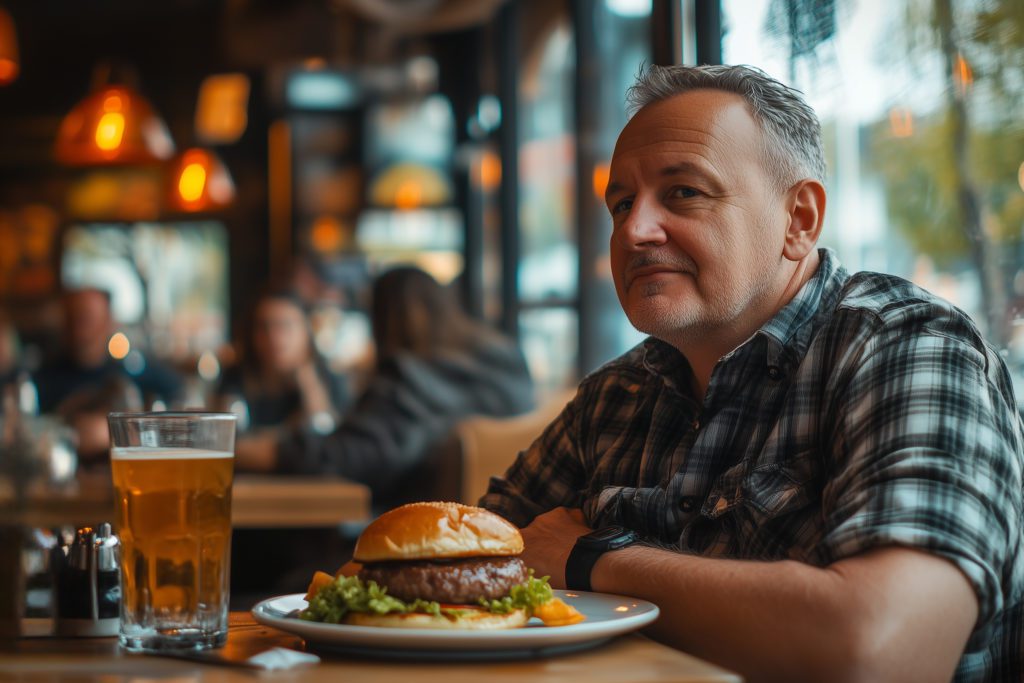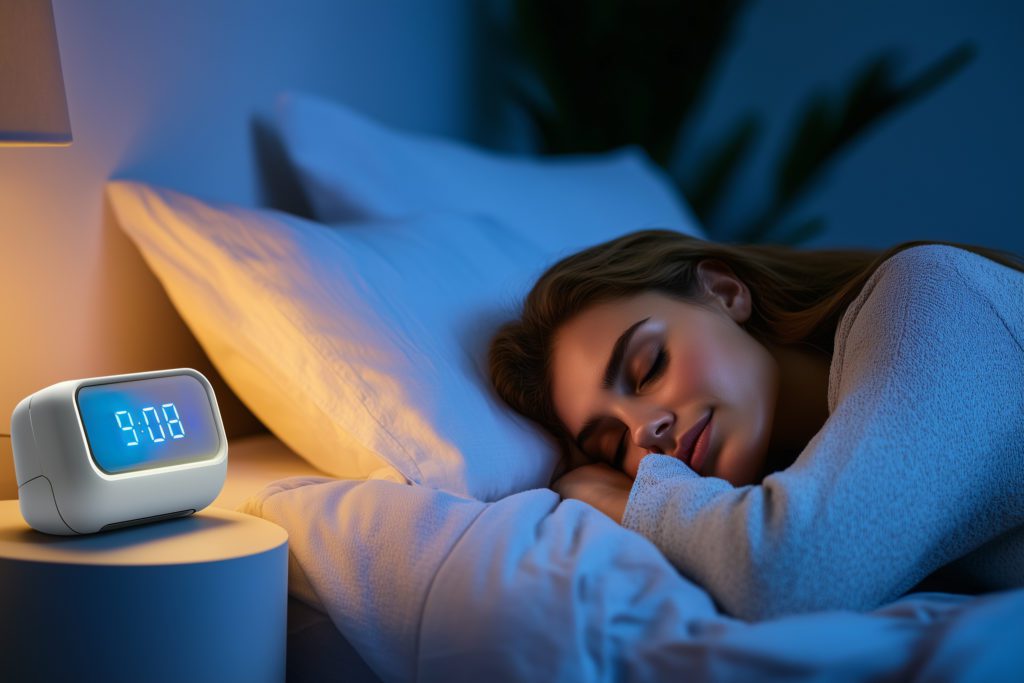
How Many Hours of Sleep Do Teenagers Really Need?
Teens need between 8 to 10 hours of sleep a night. Most teens don’t get that much and it’s hurting their mental and physical health. Here’s how to help your teen sleep better.

Teenagers tend to be “night owls.” That’s because of changes that take place during puberty. Teens experience a natural delay in their circadian rhythm that makes it harder for them to fall asleep earlier. In spite of this, teens are expected to wake up early for school. If they participate in extra-curricular activities, they may be even more likely to wake up early. This has caused many teens to struggle with sleep problems.
Teens aged 14-17 years old need approximately eight hours of sleep a night, according to the National Sleep Foundation. Some teens, especially those who are busy or physically active may need up to ten hours. But, studies have shown that most teenagers don’t get this much sleep. In fact, 70 percent of high schoolers aren’t getting enough sleep, according to some studies.
Why Sleep is Important for Teens
Sleep is essential for teenagers’ emotional, physical, and social development. When teens don’t get enough sleep, it can lead to academic problems, mental health struggles, and traffic accidents.
Physical Health
Sleep is essential for teenagers' physical health. Studies have found that teens who don’t get enough sleep are more likely to have abnormal blood cholesterol levels, high blood pressure, and excess belly fat. All of these things increase the risk of later heart disease.
Emotional Health
The risk of depression is greater in teens who don’t sleep enough. Sleep difficulties are strongly linked to difficulties with emotional regulation in teens. Suicidal ideation and suicide attempts are also linked to poor sleep.
Academic Performance
Reduced sleep negatively impairs focus and attention, both of which are vital to academic success. Daytime sleepiness can interrupt learning. Teachers may view sleepiness as a behavior problem.
Accidents
Not sleeping enough puts your teen at a much higher risk of car crashes and other accidents. Approximately 1 out of every 10 automobile accidents are caused in part by sleep deprivation. Young drivers account for more than 50 percent of those drowsy driving accidents.
Know the Signs of Sleep Deprivation
It’s important for parents to recognize when their teen is not getting enough sleep. Sleep deprivation has been consistently linked to poor mental and physical health outcomes. If your teen has the following problems, they may be suffering from a lack of sleep.
- Mood and behavioral changes (moodiness, irritability)
- Problems concentrating and paying attention
- A decrease in academic performance
- Difficulty waking up in the morning
- Slowed reaction times
- Headaches
- Daytime sleepiness
- Impulsive behavior
How to Help Your Teen Get More Sleep
Parents have to help teens make sleep a priority. Sleep is the key to good mental and physical health. Therefore, it’s important to teach healthy sleep habits to your teen. There are many ways to do that.
Have a Rule About Phone Use Before Bed
Excessive smartphone use is causing sleeping problems in teens. Many teens scroll through social media when they are lying in bed. Social media content can be highly stimulating especially fast-paced videos like those found on TikTok. Scrolling through these videos can cause teens to lose sleep.
Consider setting a deadline an hour before bedtime for cell phone use. Don’t allow your teen to have their cell phone in their room after that time. It’s also important for parents to set a good example and also restrict electronic devices close to bedtime.
Limit Your Teens’ Caffeine Intake
Energy drinks like Red Bull, Monster Energy, and Rockstar have become very popular with teens due in part to social media influencers who promote these drinks. As a result, experts say that teens are drinking too much caffeine. Teens may drink Red Bull and similar drinks to cope with a lack of sleep. While these drinks can increase alertness, they can lead to problems sleeping at night.
One study found that teens who consumed one caffeinated energy drink a day slept 30 minutes less than those who did not. Those who drank energy drinks also took longer to fall asleep. So, how much caffeine is okay for teens? Experts recommend limiting caffeine intake to less than 100 mg a day. One 8.4 fl. oz. can of regular Red Bull has 80 mg of caffeine. Teens should not drink caffeine less than six hours before bed.
Help Them Prepare for Bed
Ensure that your teen has a bedtime routine and follows a sleep schedule even on the weekends. Encourage them to engage in activities that support their sleep, such as reading before bed. Practicing bedtime yoga or listening to relaxing sounds before bed can help your teen reduce the anxiety and worry that so many teens have. This can help your teen sleep better.
Put Sleep First
If your teen is involved in work and extracurricular activities, make sure they aren’t skipping out on sleep in order to get everything done. If your teen constantly stays up late to do homework, for instance, they are likely over-booked. Help them figure out how to balance their schedule so they are getting enough sleep. This might mean dropping one or two things.
Model Good Sleep Hygiene
Many teenagers watch their parents and learn from their behavior. If parents are staying up late and watching Facebook Reels in bed, then teens are likely to do the same thing. It's important for parents to apply the same rules to themselves as they have for their teens when it comes to sleep hygiene.
Consider a Sleep Disorder Screening
Up to 20 percent of all teens suffer from a sleep disorder. Many times, these are undiagnosed or misdiagnosed. Therefore, if your teen has symptoms of a sleep disorder, such as falling asleep during the daytime or waking up feeling unrefreshed, it’s important to seek medical attention from a sleep physician.
Getting a Good Night’s Sleep
Healthy sleep is critical during the teen years for mental and physical health. Teens need eight to ten hours of sleep a night. However, many aren’t getting that much. Helping your teen cut caffeine and improve their sleep habits can go a long way toward better sleep.
FAQ
How does social media usage affect teenagers' sleep?
Social media can be mentally stimulating, making it difficult to relax before bed. The pressure to stay connected and respond to notifications can also increase stress, further delaying sleep. Setting boundaries for phone use at night can help teens sleep better
Are naps beneficial or harmful for teenagers?
Short naps (20-30 minutes) can enhance alertness and mood without significantly impacting nighttime sleep. However, frequent or prolonged naps, especially in the late afternoon, may disrupt sleep schedules and indicate underlying sleep deprivation that needs to be addressed.
Can weekend sleep-ins compensate for lost sleep during the week?
Sleeping in on weekends may help slightly, but it doesn’t fully reverse the effects of chronic sleep deprivation. Irregular sleep patterns can also disrupt the body's internal clock, making it harder to maintain consistent sleep habits.
What are the common signs of sleep disorders in teenagers?
What is the relationship between sleep and mental health in adolescents?
Poor sleep is linked to higher risks of depression, anxiety, and mood disorders in teens. Sleep deprivation can affect emotional regulation and increase stress levels, making mental health conditions worse.
Are sleep supplements like melatonin safe for teenagers?
Melatonin supplements may help with certain sleep issues in teenagers, but they should not be the first treatment option. Melatonin is not regulated as strictly as medications, and long-term effects in adolescents are not well understood. Instead, improving sleep hygiene—such as maintaining a consistent sleep schedule and reducing screen time before bed—is recommended before considering melatonin. If melatonin is used, it should be under medical supervision to ensure proper dosage and safety.

Written by
Emily Mendez
Emily Mendez is a former therapist and mental health author. She is one of the leading voices in mental health. Emily's writing has appeared in eCounseling, SonderMind, and more. Emily is frequently interviewed by Healthline, Fatherly, INSIDER, Family Circle, and other national media for her advice and expert opinion on the latest mental health topics.
Download Pillow
Get help
Press & News
Legal
Connect
X (Twitter)
Company
Copyright © Neybox Digital Ltd.



